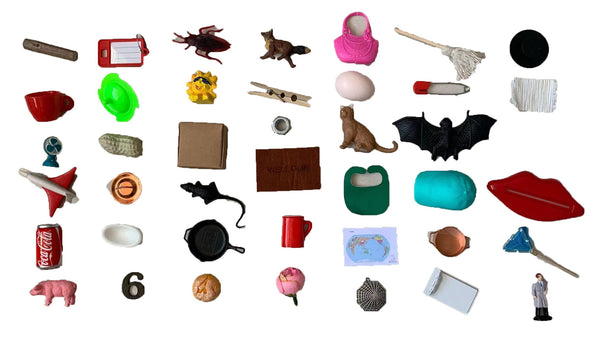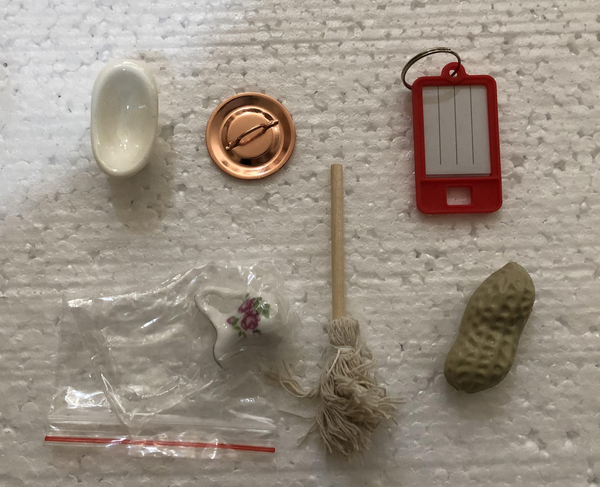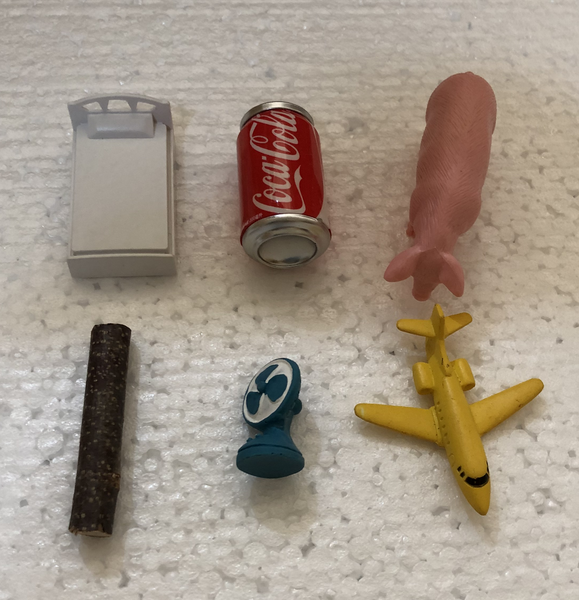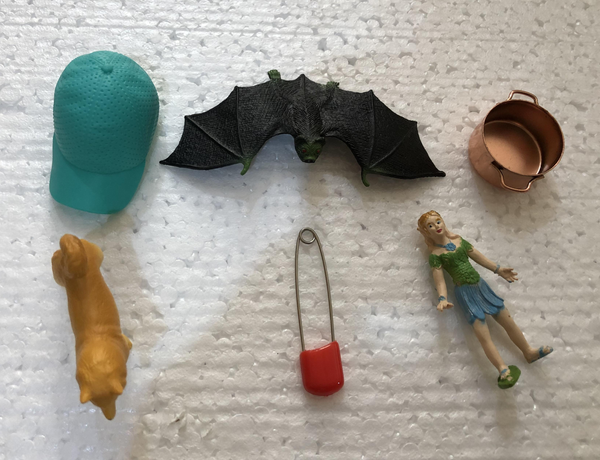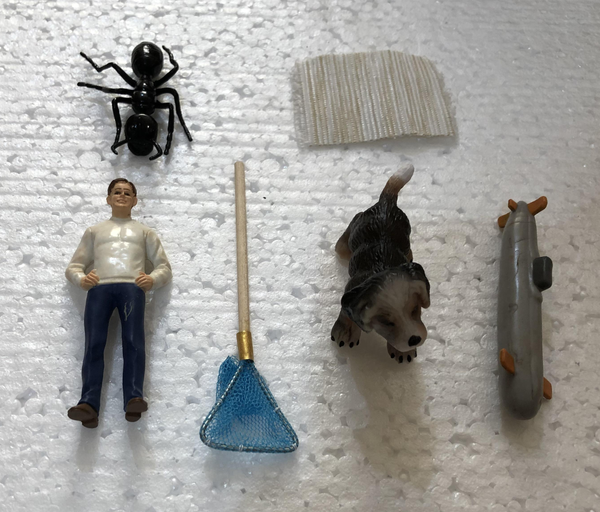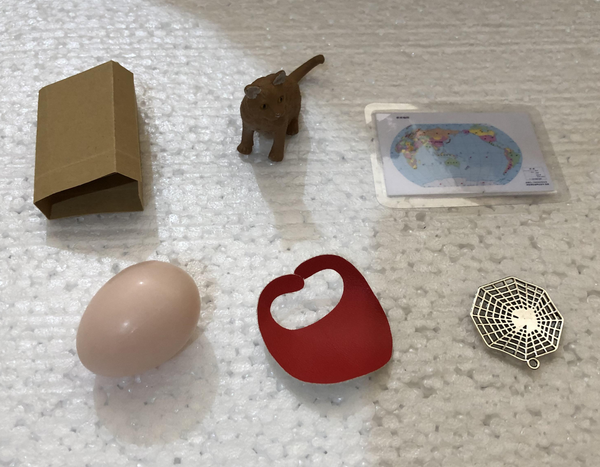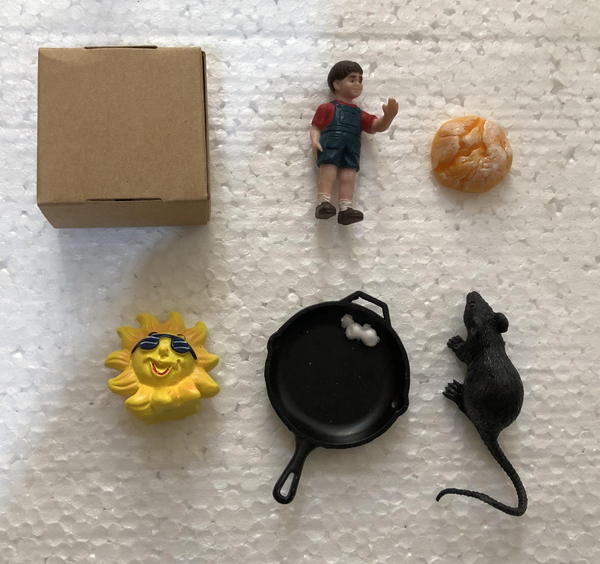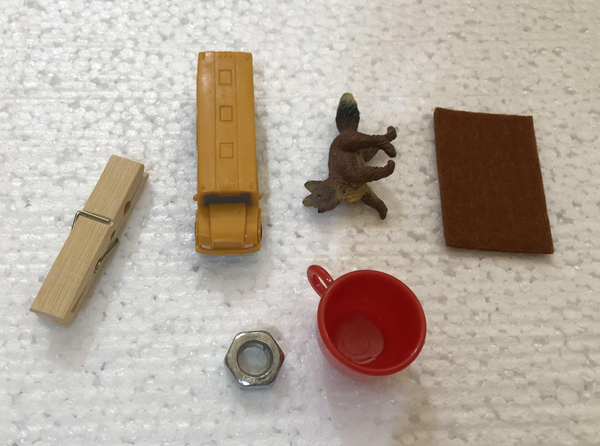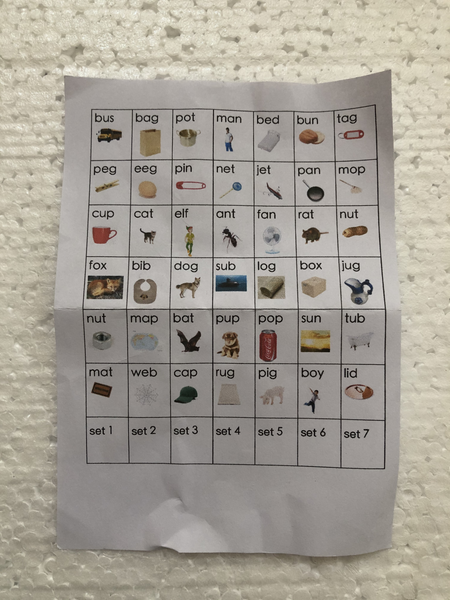Adena Montessori Materials Pink Serial Objects and E-cards file L019-04
Pink-word 40-42 objects L019-04
Montessori language objects are materials used to develop language skills in the Montessori educational approach. They are designed to provide opportunities for children to explore, associate, and learn vocabulary through sensory experiences. These objects are typically small, tangible, and represent real-life objects, animals, or concepts.
Here are a few key points about Montessori language objects:
-
Purpose: The purpose of language objects is to assist children in expanding their vocabulary, developing language skills, and enhancing their ability to categorize and comprehend different words and concepts.
-
Linguistic Development: Montessori language objects support the child's linguistic development by fostering language acquisition, matching and sorting skills, and recognition of phonetic sounds.
-
Sensorial Experience: The objects are carefully chosen to have sensory attributes such as texture, weight, shape, and color to engage the child's senses and promote active learning.
-
Realistic Representation: The objects are typically realistic and accurately represent the actual item they portray. For example, if an object represents a dog, it will have specific characteristics of a dog.
-
Vocabulary Expansion: Language objects cover a wide range of categories, including animals, fruits, vegetables, household items, geometric shapes, and more. This variety exposes children to a diverse vocabulary.
-
Independent Exploration: Montessori language objects are designed to facilitate independent exploration and self-correction. Children can handle the objects, observe them closely, and manipulate them freely.
-
Language Games: Language objects are used in various language games, such as sorting, categorizing, matching, and naming activities. These games promote comprehension, communication, and vocabulary development.
-
Sequential Learning: Language objects are typically presented to the child in a specific sequence, gradually advancing from simple to more complex concepts as the child's linguistic skills progress.
-
Extension of Learning: Language objects can be used to extend learning beyond individual words. They can be combined with other materials to create sentences, stories, or elaborate language activities.
Overall, Montessori language objects play a significant role in promoting language development, vocabulary expansion, and overall learning in young children. They provide hands-on experiences that foster engagement, curiosity, and independence in their journey to acquire language skills.









